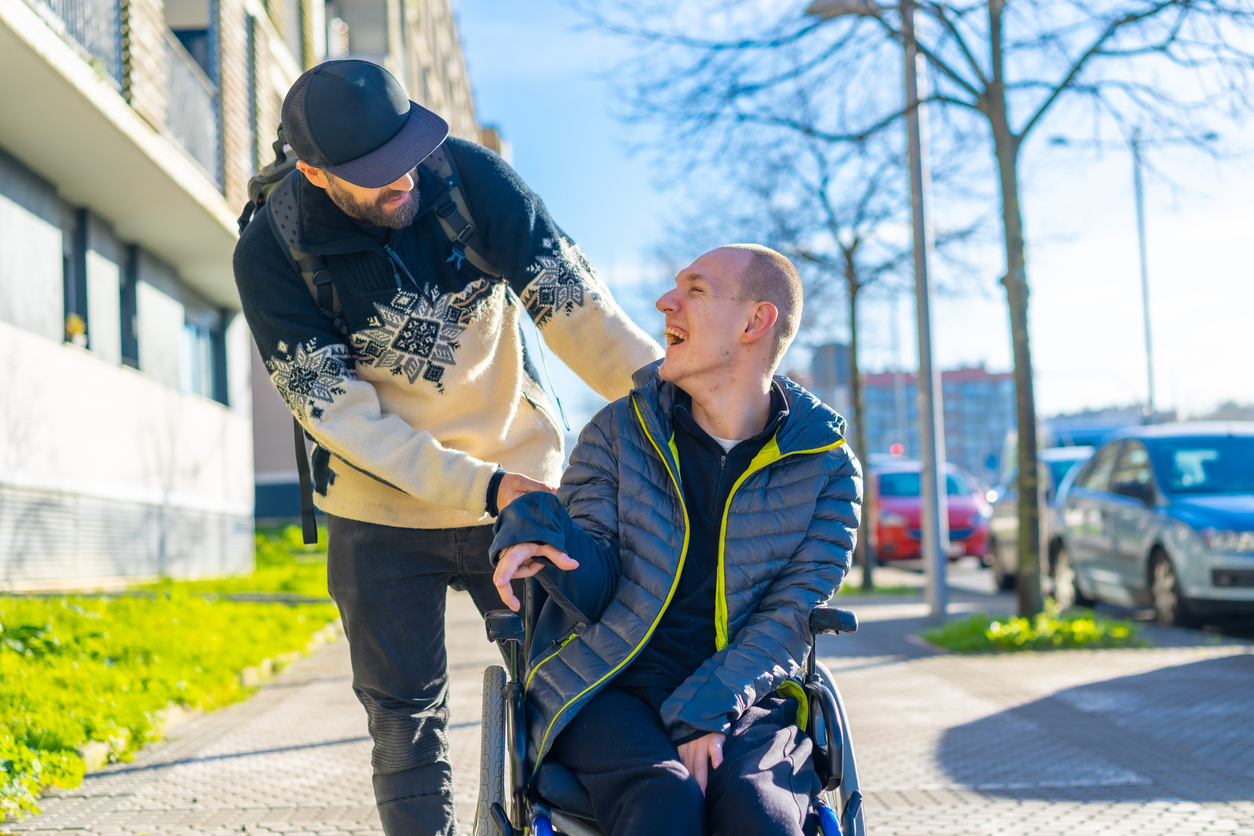Disabilities and Unemployment

People with disabilities represent a vital part of the national workforce. According to the CDC, 61 million people, approximately 25% of the population, live with a disability, and yet unemployment rates for people with disabilities continue to be higher than the non-disabled population.
The Bureau of Labor Statistics reports that as of December 2020 the unemployment rate for people with disabilities was 8.5%, compared to 3.6% for the non-disabled population.
The good news is that unemployment rates continue to decrease for people with disabilities, since spiking in early 2020 when the coronavirus pandemic first began, but more needs to be done to ensure inclusivity and diversity within the workforce.
What is Disability Inclusion?
The concept of disability inclusion is most often thought of as the practice of including people with disabilities in the same aspects of daily life as those without disabilities, but there is more to it than that.
The action of inclusion isn’t simply a matter of reaching out to the disabled community and inviting them to be part of activities, employment, and more. It is ensuring the environments in which we work, recreate, and live are accessible and comfortable for people with disabilities. The responsibility for creating accessible environments lies with the systems we live and work in every day.
Disability Inclusion in the Workplace
Most employers express a desire to foster an inclusive workplace where all employees feel valued and appreciated. The gap between the desire to have an inclusive working environment and the actions taken to achieve this is where the problem lies. Inclusivity means not just expressing that it is important, but also addressing all types of exclusion - even those that are unintentional - to create a truly inclusive workplace.
Disability inclusion means everyone can fully participate in all aspects of society without barriers, can achieve their goals, and thrive to their full potential.
Ways Employers Can Create an Inclusive Workplace for People with Disabilities
Creating an inclusive workplace not only reduces the unemployment rate for people with disabilities but also has far-reaching benefits for employers and employees. Embracing differences creates a diverse and culturally rich environment that attracts and retains talent from all walks of life.
Some ways employers can support an inclusive workplace for people with disabilities include:
- Recruitment and hiring policies and procedures that increase the representation of people with disabilities
- Programs that educate employees about unconscious bias
- Implementing policies and procedures that support best practices for disability inclusion.
- Creating a working environment that is accessible for people with disabilities, including tools, technologies, services, resources, and physical accessibility of workspaces and buildings
- Corporate training for all employees to increase awareness and education about disability inclusion
- Implement an Accommodation Policy and Program
- Encourage open communication from all employees for ways to improve inclusion in the workforce
- Respect employees’ accommodation requests in the workplace
Job Search Tips for Individuals with a Disability
Unemployment can cause a lot of anxiety and uncertainty, especially during these already uncertain times as we adjust to life during a pandemic. A study published by Global Disability Inclusion in April 2020, just as the pandemic was beginning, revealed that two-thirds of people with disabilities were expected to experience ‘acute economic insecurity’ over the following 12 months.
An unexpected silver lining to the impact of the pandemic is that now, more than ever, the amount of jobs available continues to increase every day; this is an aftereffect of what has been coined ‘The Great Resignation’ as employees leave their jobs in droves to pursue more meaningful work.
Here are some job-seeking tips that can help reduce uncertainty and put you in control of looking for a new opportunity:
- Review Your Resume: Make sure your resume is up to date and includes all skills and interests you have that apply to your field(s) of interest.
- Learn a New Skill: In the aftermath of quarantine, many colleges, universities, and even companies are offering free (or low cost) online training. Now is a great time to learn a new skill and open up the field of possibilities for employment.
- Expand Your Comfort Zone: If you are in an industry that has been hit hard by the pandemic, now is the perfect time to expand your horizons and look for opportunities outside your field where your skills, interests, and expertise apply.
- Remote Work: Due to the pandemic there is an explosion in remote work opportunities. On job boards like indeed.com you can even filter job listings to show only remote work positions. This dramatically expands the number of job opportunities available.
- Consider Part-Time Employment: To ease stress while you’re looking for a job, consider part-time opportunities in your community or online. There are also thousands of remote part-time positions available.
Join the Thrive Community!
We’ve gathered a number of inspiring individuals with disabilities in our very own Thrive Community! The Thrive Community Facebook Group is a private space for any person with a disability, as well as caregivers and healthcare providers that touch their lives.
Our purpose is to provide a safe, educational space for group members to ask every question, connect with their peers, and empower each other through communication and connection. Our conversations are led by incredible individuals who themselves are living and thriving.
For more enlightening resources, information, and discussion, join the ENEMEEZ® Thrive Community today!
Disclaimer: The material contained is for reference purposes only. Quest Healthcare, A Division of Quest Products, LLC, does not assume responsibility for patient care. Consult a physician prior to use. Copyright 2022 Quest Healthcare, A Division of Quest Products, LLC.
Sources:
- Disability Impacts All of Us Infographic | CDC
- Disability Employment Statistics | U.S. Department of Labor (dol.gov)
- https://fred.stlouisfed.org/series/LNU04074597
- Disability: The Actionable Inclusion Guide and Statistics [2021] | Diversity & Social Impact Made Easy
- How COVID-19 Is Impacting The Disabled | Whitepaper Download (globaldisabilityinclusion.com)












